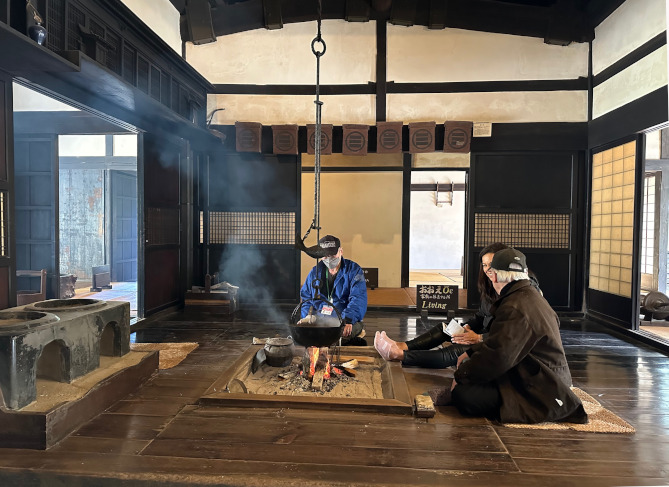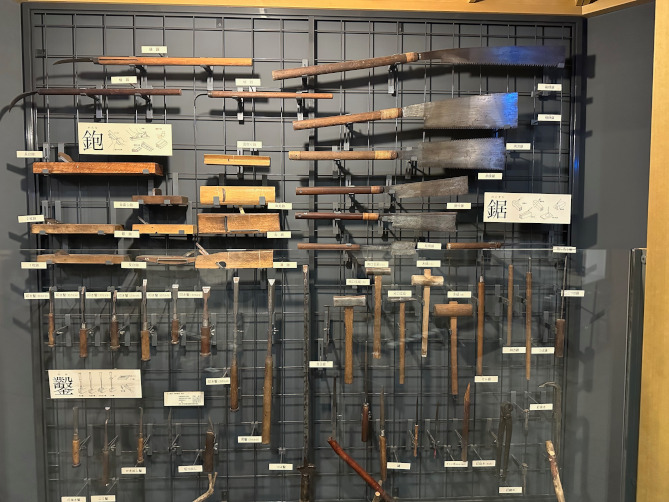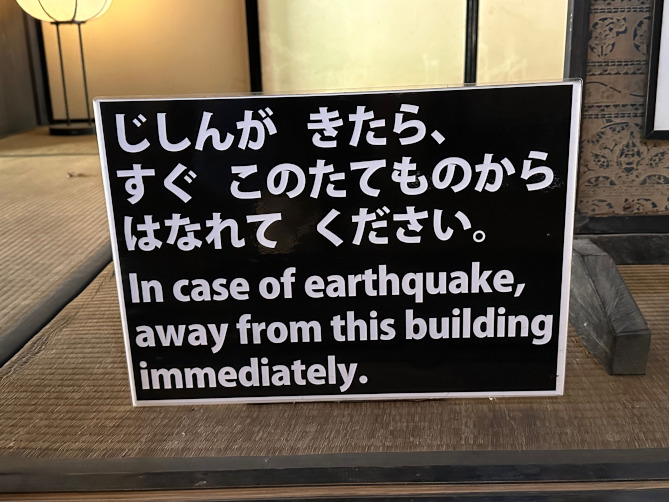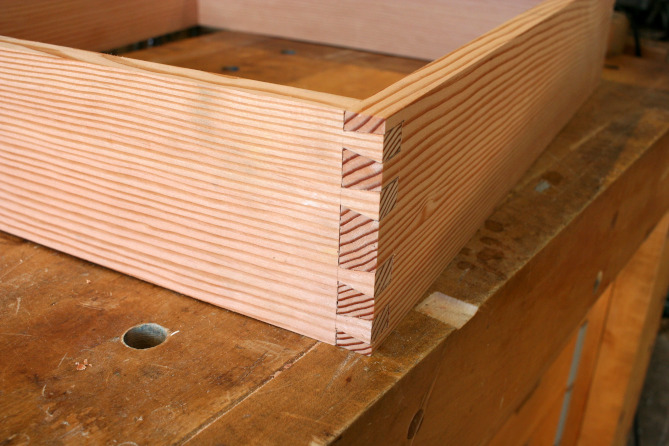
Print by Kawase Hasui (1883-1957) high res scans available here.
Marie Kondo Appalled! Extreme Hoarding and Trash-filled Homes in Japan
Here’s how to see ‘horned’ comet 12P/Pons-Brooks in the night sky this month

Print by Kawase Hasui (1883-1957) high res scans available here.
Marie Kondo Appalled! Extreme Hoarding and Trash-filled Homes in Japan
Here’s how to see ‘horned’ comet 12P/Pons-Brooks in the night sky this month

We spent the past two weeks visiting a college friend of Kelly’s who moved to Japan thirty years ago and raised a family there.
What follows is a touristy slide show because I don’t want to be one of those people that drops into a place and has opinions after just a short stay. Most of our time we were in Tokyo but took a day trip to Kamakura and a three night trip to Kanazawa.

We met a few Buddhist temple cats.

Our hosts took us to the Jindaiji Temple’s Yakuyoke (Ward Off Misfortune) Ganzan Daishi Festival during which you can have a priest write a character on one eye of a Daruma doll to bring good fortune.

Daruma dolls for sale at the festival.

Our time in Japan was just before Sakura (cherry blossom season). A few trees were blooming early and the stores were full of Sakura themed goods and foods.

There’s even a Sakura themed Domino’s pizza meal.

Tokyo was immensely fun to wander at night and I kept thinking of the class I took on Frederic Jameson’s book Postmodernism, or, the Cultural Logic of Late Capitalism. In that book Jameson links the particular stage of global capitalism we live in with the confusing “hyperspacial” non-hierarchical architectural spaces we navigate. Tokyo’s huge, meandering shopping malls, train stations and packed boulevards overwhelm, disorient and perfectly exemplify what Jameson describes in that book.

We took a day trip to Kamakura to see the many Shinto shrines and Buddhist temples as our hosts warned us that Kyoto has become, sadly, over-visited with crowds of misbehaving Westerners.

The bamboo forest of the Houkokuji Temple in Kamakura.

Buddhas at the Hase-dera Temple in Kamakura. This temple also has a stunning 30 foot wooden Buddha.

We took the sleek Shinkansen bullet train to Kanazawa. The train covers roughly the same distance I regularly travel on Amtrak to get to San Francisco. Of course the Shinkansen does so in a fraction of the time, with no waiting for passing freight trains and with clean bathrooms. Unfortunately, we can’t even aspire to this kind of basic social democracy in the U.S., i.e. things like healthcare for all and decent public transportation.

In Kanazawa we had a guide to show us around and one of the stops was at a gold leaf workshop. Gold leaf is one of the crafts Kanazawa is known for.

We stayed at an inn and enjoyed a fancy Japanese breakfast.

We visited the reconstructed Kanazawa castle to nerd out on the joinery.

During our brief two weeks in Japan we visited three architectural museums and the Reversible Destiny Lofts (more on that visit in another post).

At one of the museums they still burn fires in the old buildings to keep the termites at bay and demonstrate the old ways.

There was more nerding out over woodworking to be done at one of the architectural museums. You pull rather than push Japanese saws and planes and they were traditionally used from a seated position.

There were a lot of warnings while we were there predicting a possible large earthquake in the Tokyo area and our visit coincided with the March 11 anniversary of the 2011 earthquake, tsunami and subsequent nuclear disaster.

Near our hotel was the headquarters of the Japanese Communist Party which is more of a progressive party not a Stalinist type org. These two posters say Yes to higher wages and No to military expansion.

On the other end of the political spectrum we also got to watch a bizarre and loud caravan of Japanese Qanon enthusiasts, their loudspeakers echoing through a fashionable neighborhood of ceramics shops, popup doughnut purveyors and soba restaurants.

Once the jet lag subsides I’ll attempt a blog post about the Reversible Destiny Lofts. In the meantime many thanks to our hosts for their hospitality.
There’s nothing like the unintentional horror of a 1970s era British public service ad.

The woodworking I do combines machines and hand tools. I have kind of a early 20th century shop–machines for the rough stuff: table saw, band saw, jointer and planer and hand planes and hand saws for the details. I took an excellent hand cut dovetail class taught by Chris Gochnour a few years ago where we learned how to make dovetails with a hand saw, chisel and fret saw. I’ve been practicing the skill ever since. While my dovetails aren’t perfect I’ve gotten to the point where they come together almost right off the saw.

I invested in an expensive Lie Nielsen tapered dovetail saw for this purpose and it’s one of my favorite tools.
I used to use a router jig to cut my dovetails but I now prefer doing it by hand. There’s a lot less dust and noise and that router jig was a real pain to set up. Plus I’m beginning to enjoy accumulating odd, outdated hand skills just for the sake of those skills. You can make perfectly serviceable drawers entirely by machine but if you have the time and are making things for yourself not for work, I think doing it by hand is the way to go.